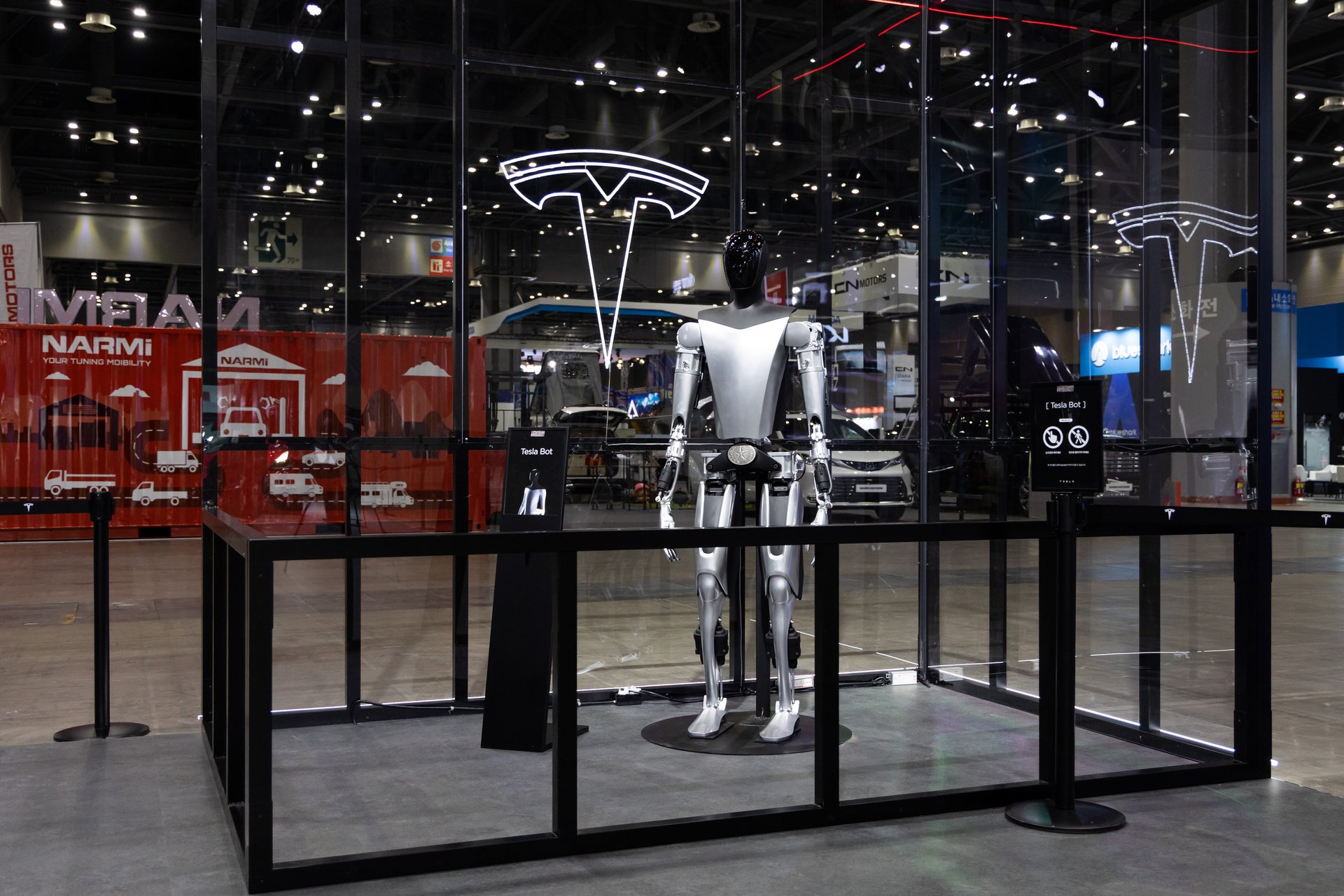Tesla accuses a former employee of stealing its Optimus robot tech
Tesla claimed in its lawsuit that the former employee launched a rival firm using stolen robotic hand designs

(Photo by SeongJoon Cho/Bloomberg via Getty Images)
The future of robotics may be humanoid — but Tesla says this move was all too human. The EV giant is suing a former engineer for allegedly stealing trade secrets from its Optimus program and founding a rival AI robotics firm days later.
Suggested Reading
As Bloomberg reported, Tesla has filed suit against Zhongjie “Jay” Li, a former engineer on its Optimus humanoid robot program, accusing him of stealing proprietary designs and launching a rival startup in the heart of Silicon Valley. According to Tesla, Li didn’t just walk away with company secrets — he allegedly copied some of the robot’s most complex components and recreated them under a new name: Proception Inc.
Related Content
The suit, filed Wednesday in federal court in San Francisco, paints a picture of quiet defection and stealth data siphoning.
Tesla claims Li downloaded sensitive files — specifically those related to robotic hand sensors — onto personal devices in the weeks leading up to his September 2024 departure. Just six days later, Proception was incorporated. Within five months, Proception was demoing a five-fingered “ProHand” that Tesla calls a dead ringer for its design — or, “hands that bear a striking resemblance to the designs Li worked on at Tesla,” according to the complaint.
Now, Tesla wants damages and an injunction blocking Li from using what it has called the most sophisticated hand ever made. Tesla’s Optimus program, still in early development, is aimed at creating general-purpose robots capable of factory labor, household tasks, and even child care. CEO Elon Musk said in May that the robot will be “the biggest product of all time.”
Robot wars
The humanoid robot industry, long stuck in the uncanny valley, is heating up as AI and sensor tech finally catch up to sci-fi ambition.
Several companies, including Figure AI (which just landed investment from Amazon and OpenAI), 1X Technologies, and Apptronik, are racing to deliver general-purpose bots. But making a truly dexterous robotic hand — one capable of gripping, pinching, and manipulating small objects — is one of the field’s holy grails.
That’s the very capability Li allegedly reproduced at Proception.
He was “entrusted with some of the most sensitive technical data in the program,” Tesla’s lawyers said in the filing, and Li's “conduct is not only unlawful trade misappropriation — it also constitutes a calculated effort to exploit Tesla’s investments, insights, and intellectual property for their own commercial gain.”
If Tesla’s allegations hold, the event would reprise a familiar plotline. The company has sued at least three former employees since 2020 for hauling data off to Zoox, XPeng, and most recently, Rivian; all those cases were settled before trial.
On the company’s earnings call in April, Musk said that he expects the scale-up of the Optimus robots to be faster than any of the company’s other products — a million units per year in less than five years. Musk claimed that there would be thousands of the robots working in Tesla factories by the end of the year and promised that the Optimus robots would help produce a time of “sustainable abundance for all.”
The timing is awkward for Musk, who has been pounding the table about Optimus for months, predicting “thousands of Optimus robots working in Tesla factories by the end of this year” and, eventually, “millions per year.” Last week, Optimus’ head of engineering, Milan Kovac, abruptly quit “to spend more time with family abroad,” forcing Autopilot chief Ashok Elluswamy to take the reins.
Losing a top lieutenant while fending off alleged intellectual-property leaks underscores how critical — and fragile — Tesla’s robotics push has become.